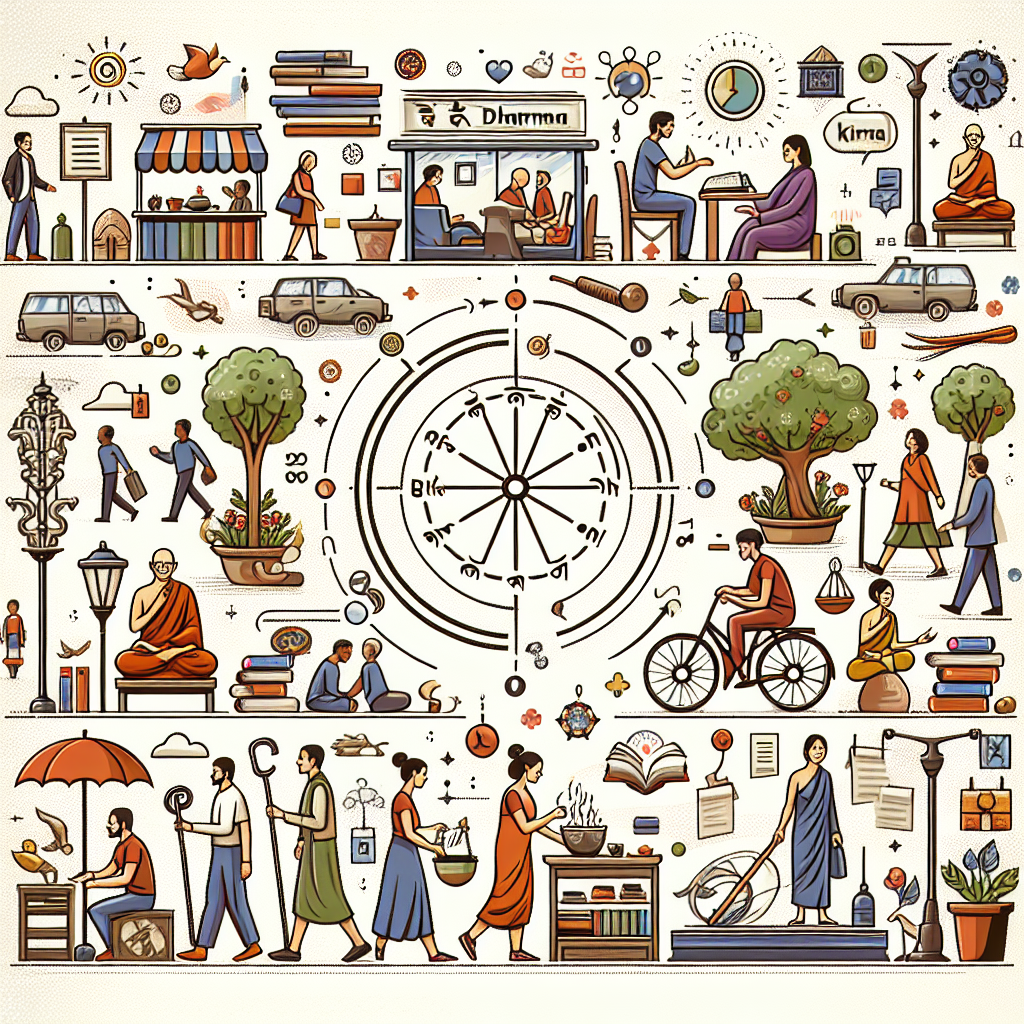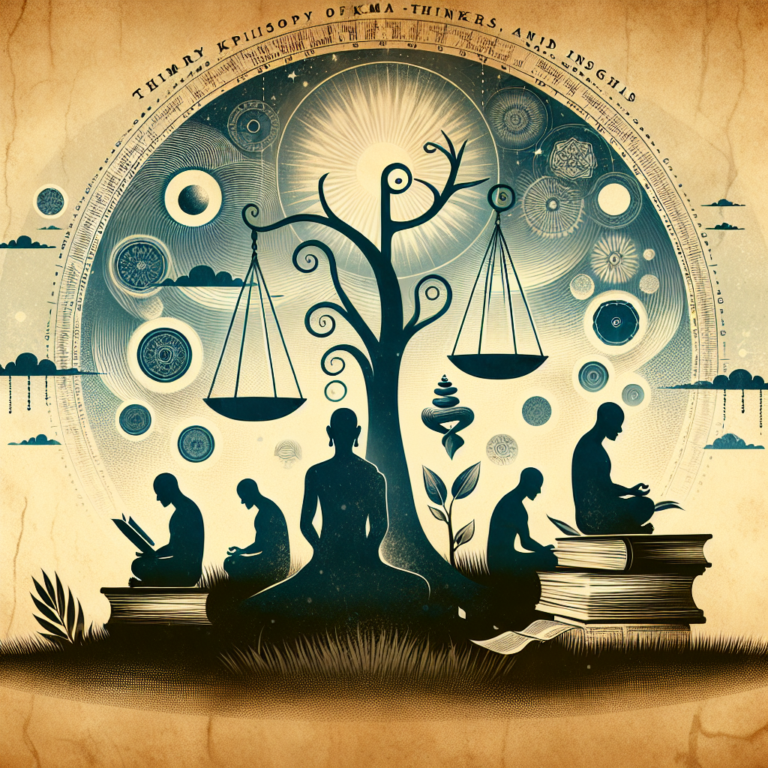Dharma is a profound concept that has captivated the minds and hearts of countless individuals throughout history. Often translated as “duty,” “righteousness,” or “moral order,” dharma serves as a guiding principle in various aspects of life, encouraging individuals to align their actions with the natural law of the universe. This article delves into the essence of dharma, its significance in leading a meaningful life, and how it can be integrated into daily practices.
What is Dharma?
At its core, dharma refers to a set of moral and ethical values that provides a framework for living your life. It encompasses duties, rights, laws, conduct, virtues, and “the right way of living.” While the concept is deeply rooted in Hinduism, Buddhism, Jainism, and Sikhism, it transcends religious boundaries and can be applied in secular contexts as well.
The Historical Context of Dharma
To fully understand dharma, it is essential to explore its historical and cultural significance. In ancient India, the Vedic texts elaborated on dharma as a principle of order and righteousness, distinctively tied to cosmic law. This was later expanded in texts such as the Mahabharata and the Bhagavad Gita, where dharma is discussed in relation to personal and social ethics, duty to family and society, and the quest for truth.
The Dual Nature of Dharma
Dharma manifests in two principal forms:
- Samanya Dharma: Common dharma that applies to all human beings irrespective of their specific circumstances. This includes universal ethical principles such as truthfulness, non-violence, and compassion.
- Svadharma: Individual dharma, which recognizes that one’s duty and responsibilities vary based on personal circumstances, social roles, and life stages. This encourages people to understand and embrace their unique responsibilities.
The Importance of Dharma in Modern Life
In today’s fast-paced world, the importance of dharma remains relevant. It offers a compass for navigating complex moral situations and decision-making processes. Integrating dharma into our lives can help cultivate a sense of purpose and direction.
Here are some ways dharma can enhance our lives:
- Inner Peace: Aligning with one’s dharma often leads to a greater sense of inner peace and contentment. When actions are in harmony with one’s values, there is reduced conflict and stress.
- Fulfillment: Embracing one’s unique path and responsibilities can foster a profound sense of fulfillment. This contributes not only to individual happiness but also to the well-being of those around us.
- Greater Community Connection: Dharma encourages individuals to contribute positively to their communities. By understanding one’s role in society, individuals can work towards the collective good.
- Resilience Against Challenges: Life’s challenges can overwhelm us, but a clear sense of dharma can provide strength and resolve. When faced with adversity, knowing your purpose can guide you through difficulties.
Practical Steps to Understand Your Dharma
Understanding and living your dharma involves introspection and conscious action. Here are practical steps to help discover your dharma:
1. Self-Reflection
Take time to reflect on your values, passions, and skills. Consider what brings you joy and fulfillment. Journaling can be a useful tool for this process.
2. Seek Guidance
Engage with mentors, spiritual leaders, or counselors who can provide insights and support. Discussion and dialogue can help clarify your understanding of dharma.
3. Active Engagement
Immerse yourself in different roles and responsibilities. Experimenting with various activities, whether in community service, professional contexts, or personal projects, can shed light on your unique dharma.
4. Stay Open to Change
Dharma is not static; it evolves with experiences and growth. Trust the process and be open to adjustments along the way.
The Relationship Between Dharma and Karma
Dharma and karma are interlinked concepts in Indian philosophy. While dharma refers to the right action, karma is the result of those actions. Living in accordance with dharma leads to positive karma, fostering personal development and benefiting the collective.
Understanding this relationship can inspire individuals to consider the impact of their choices on themselves and on others. When one acts righteously, the consequences of those actions naturally contribute to a positive outcome, reinforcing the principle of dharma.
Challenges in Adhering to Dharma
While striving to live in accordance with dharma may seem straightforward, various challenges can arise:
1. External Pressures
Society often imposes conflicting standards, leading individuals to compromise their authentic paths. Standing firm in your dharma can be difficult when the collective pressures demand conformity.
2. Ambiguity in Duty
For many, understanding their specific responsibilities can be complex and layered. Different circumstances and roles can create conflicting expectations, making it challenging to discern one’s true dharma.
3. Fear of Judgment
Fears about how others perceive our choices can hinder our ability to act according to dharma. It is essential to cultivate self-confidence and resistance to external judgment.
Conclusion
Understanding dharma is a journey of self-discovery that extends beyond mere duty; it is a path to living an authentic and meaningful life. By recognizing our unique responsibilities and striving to fulfill them, we contribute not only to our personal growth but also to the well-being of our communities. Balancing individual passions with societal roles can create a harmonious life that reflects both personal fulfillment and collective responsibility. As we navigate the complexities of life, may we remain committed to our dharma, fostering peace, purpose, and connection in our everyday experiences.
FAQs
What is the difference between dharma and karma?
Dharma refers to the righteous path or duties one should follow, while karma represents the results or consequences of actions taken. In essence, dharma guides actions, and karma reflects the outcomes of those actions.
Can dharma change over time?
Yes, dharma can evolve as individuals grow and their circumstances change. It is important to remain flexible and responsive to life’s experiences.
Is dharma the same for everyone?
No, dharma varies from person to person. Each individual has their unique path and responsibilities based on their talents, societies, and life situations.
How do I know if I am living my dharma?
Living your dharma often involves feeling a sense of fulfillment and purpose in your activities. Reflect on your values, passions, and responsibilities, and assess if you are acting in alignment with them.
Why is dharma important in spirituality?
Dharma is a fundamental tenet in many spiritual paths, as it aligns one’s actions with moral and ethical standards. It serves as a compass for creating a meaningful life and spiritual growth.
https://open.ai/18134066c2f7465c449dc9ed22b25560 , It looks like you entered “Prompt” but didn’t provide any specific context or details about what you’re looking for. Can you please clarify or elaborate on the prompt you have in mind? Whether it’s for writing, brainstorming, or something else, I’m here to help!, #Understanding #Dharma #Path #Meaningful #Life, #Understanding #Dharma #Path #Meaningful #Life, 1734008150, understanding-dharma-the-path-to-a-meaningful-life




